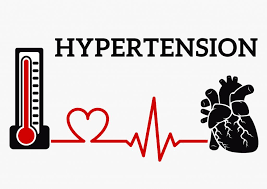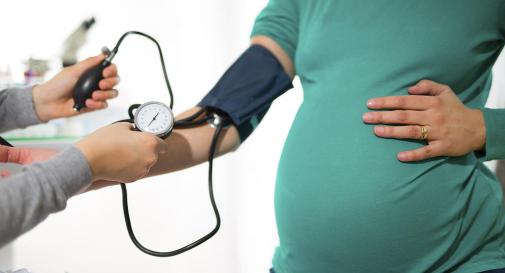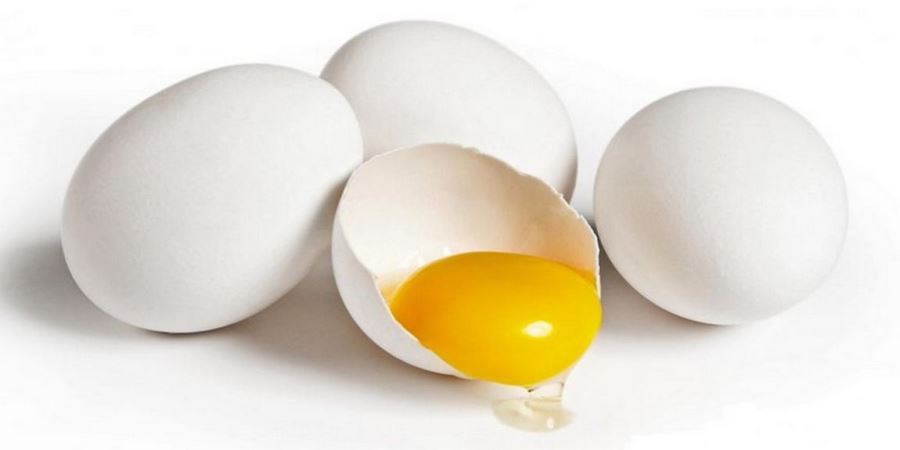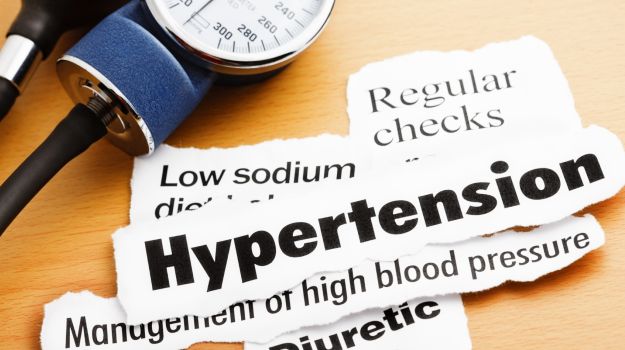Blood Pressure is a silent killer. High blood pressure can quietly damage your body before actual symptoms get visible. Left uncontrolled, you may end up with disability, poor quality of life or even fatal heart attack. Read the symptoms & signs for this silent killer.
Diuretics are substances that allow the body to get rid of excess water and sodium. They help in draining out the water by stimulating the kidneys and eliminate sodium from the urine thus, facilitating drainage of excess water. Diuretics are prescribed by the doctor when the body starts to retain excessive fluids.
The conditions that lead to problems such as:
1. High blood pressure: This is a disorder wherein the blood exerts more than the normal force (pressure) against the arterial walls while flowing through them.
2. Diabetes: It is a metabolic disorder wherein the blood sugar level rises significantly.
3. Kidney stones: Kidney stones refer to the formation of stones in the kidneys that can hamper the normal functioning of the kidney, leading to fluid retention in the body.
4. Edema: A disorder wherein parts of the body tend to swell due to inflammation is called ‘edema’.
5. Impaired functioning of the kidney: Impaired functioning of the kidneys makes it very difficult to flush out the excess sodium from the body thus, leading to fluid retention.
There are certain natural diuretics, which can come to your aid in times such as these. Read on to know more:
1. Parsley: Parsley, a very effective diuretic, is an herb that is commonly used for garnishing. It can also help in relieving bladder problems.
2. Black and green tea: Both green and black variants of the humble tea are very effective diuretics; you can enjoy them after a heavy meal to get rid of the bloating.
3. Hawthorn: A type of natural diuretic that is effective in reducing fluid accumulation and increasing urinary excretion. It also helps in treating problems of the kidney.
4. Juniper: A diuretic that has been used since ancient times. Juniper is very effective in removing excess salt and fluids from the body. The advantage of this plant is that it does not lower downs the level of potassium in the body, a side effect of other diuretics.

High blood pressure – or hypertension – is common in both men and women, especially as we age. However, it tends to follow different patterns over the course of men’s and women’s lifetimes.
“In general, blood pressure in children and adolescents is equivalent between males and females,” says cardiologist Dr. Paula Harvey, director of the cardiovascular research program at Women’s College Hospital.
That pattern changes after puberty and through the teenage years. Through their reproductive years, women tend to have lower blood pressure than men the same age, and lower rates of hypertension.
“When women transition through menopause things start to change,” Dr. Harvey says. “Blood pressure in women starts to increase with age at a faster rate than it does with men, so you get a steepening of that age-related increase in blood pressure. By age 75 or 80, there are more women with high blood pressure than men.”
Age-related patterns
With age, specific types of high blood pressure become more prevalent in women compared to men. Around menopause and after, women experience a disproportionate increase in systolic blood pressure (the top number in a blood pressure reading) versus diastolic pressure (the lower number). This pattern of a high systolic reading and a normal diastolic is called isolated systolic hypertension (ISH). It is associated with a stiffening of the blood vessels that women experience after menopause.
“Before menopause, we have very pliant, stretchy blood vessels,” Dr. Harvey says. “In that second half of life they start to get very stiff, and that’s reflected in this change in pattern.”
Despite the low diastolic reading, ISH is still a health concern.
“You can’t be complacent because your diastolic reading is in the normal range,” Dr. Harvey cautions. “When it’s coupled with that high systolic reading, that’s actually reflecting stiff blood vessels, and we know that is associated with increased adverse outcomes from the hypertension.”
Older women with ISH may also experience variations in their blood pressure. It may rise if they are under stress or doing certain activities, then drop down again, then increase again.
“That isolated systolic hypertension pattern is more difficult to control, and is associated with all the risks that high blood pressure is associated with,” Dr. Harvey says. “We treat high blood pressure because it leads to increased risk of cardiovascular disease such as heart attacks and strokes, heart failure, heart rhythm disturbances, kidney failure and possibly dementia.”
Reproductive factors
Superimposed on those lifetime patterns of blood pressure are factors related to reproductive changes.
“Pregnancy can be associated in some women with pregnancy-induced hypertension,” Dr. Harvey says. “The contraceptive pill, which is used by very large numbers of women, can cause increased blood pressure in a small number of individuals.”
That increase in blood pressure can happen at any time a woman is taking birth control pills. That’s why Dr. Harvey recommends that all women taking the pill have their blood pressure checked annually.
Hormone replacement therapy used by perimenopausal and menopausal women does not appear to have the same effects on blood pressure as the contraceptive pill.
Sex and gender must also be taken into account when prescribing medication for hypertension.
“Because we are treating women at different stages in their lifespan we have to be very aware of the best treatments for them,” Dr. Harvey says. For example, great care must be taken when choosing medications for women of reproductive age who are likely to become pregnant, or women who are breastfeeding. After menopause, the ISH pattern of hypertension that is common in women responds better to certain classes of medication than others.
Lifestyle
Dr. Harvey stresses that some of the most effective interventions for hypertension at any age are not pharmaceutical.
“I’m very invested in lifestyle interventions,” she says. “I spend a lot of time talking to my patients about what they can do for themselves before we even start thinking about medication. Top of the list is exercise.”
Exercise can be as effective as drug therapy. For example, the ISH pattern of high blood pressure so often seen in postmenopausal women can be reduced with exercise.
“Exercise helps keep the blood vessels stretchy and pliant, so you don’t have that progression to very stiff blood vessels associated with ISH,” Dr. Harvey explains.
What you put in your body matters, too. The DASH (Dietary Approach to Stop Hypertension) diet – which stresses fresh fruit and vegetables, whole grains, fish, low fat intake and low salt – is recommended for people with hypertension. Alcohol recommendations follow the Canadian guidelines for low-risk drinking: no more than two drinks per day for women, and no more than 10 drinks per week in total.
The risks of smoking – including premature cardiovascular disease and death – cannot be overstated.
Other lifestyle factors associated with hypertension include obesity, life stress, and poor quality sleep. Addressing all of these factors can have a powerful effect on blood pressure, and on overall heart health.
Preeclampsia is a high-blood pressure disorder which is unique to pregnancy and develops about 3 to 8% of all pregnant women. According to latest study, it ties alongside it a potential risk of stroke.
According to the study, one in 10 pregnant women may be six times more at a risk of having a stroke during or after childbirth, as compared to normal women.
Women suffering from Preeclampsia commonly complain about high blood pressure, swollen feet, ankles and face and severe headaches. If the current findings published in the journal Stroke are to be believed, Preeclampsia patients have another cause of worry added to their health concern list.
The lead author Eliza C Miller, postdoctoral student at Columbia University in the US said that conditions like chronic hypertension, bleeding or clotting disorders, or urinary tract infections may be at an increased risk of stroke.
Explaining the mechanism behind it the study says, that infections causes inflammation, which can contribute significantly in triggering a stroke, especially amongst the young people.
The study explained that Preeclampsia is an inflammatory disorder, and it could be the infections that could put the woman on the radar of risk.
Researchers analysed health records of 197 women who had a preeclampsia-related stroke and 591 women with preeclampsia who did not have a stroke, as part of their study. They found that the occurrence of attacks and stroke in women suffering from preeclampsia was over 200 per 100,000 deliveries, and more than one in 10 women in the study who had a preeclampsia-related stroke died in the hospital.
Alongside that data, Miller mentioned that it was crucial to take into account that the risk of stroke in women with preeclampsia doesn't end with delivery. And that nearly two-thirds of preeclampsia-related strokes trigger after birth, when the mothers are discharged from the wards.
She also advised, women with preeclampsia to not take any neurological symptoms, such as severe headache, very seriously, especially during the postpartum period.
A study by American scientists presented Wednesday supports the view that a substance in egg white has the ability to lower blood pressure without negative effects.Scientists reported that a component of egg whites, already popular as a substitute for whole eggs among health-conscious consumers concerned about cholesterol in the yolk may have another beneficial effect in reducing blood pressure, reports Science Daily.
Their study was part of the 245th National Meeting and Exposition of the American Chemical Society (ACS), the world's largest scientific society, which continues here through Thursday.
"Our research suggests that there may be another reason to call it 'the incredible, edible egg,'" said study leader Zhipeng Yu, Ph.D., of Jilin University.
"We have evidence from the laboratory that a substance in egg white -- it's a peptide, one of the building blocks of proteins -- reduces blood pressure about as much as a low dose of Captopril, a high-blood-pressure drug," Zhipeng Yu said.
Yu and colleagues, who are with Clemson University, used a peptide called RVPSL. Scientists previously discovered that the substance, like the family of medications that includes Captopril, Vasotec and Monopril, was an angiotensin-converting-enzyme (ACE) inhibitor.
It has a powerful ability to inhibit or block the action of ACE, a substance produced in the body that raises blood pressure.
The results of feeding the substance were positive, showing that RVPSL did not have apparent toxic effects and lowered blood pressure by amounts comparable to low doses of Captopril.
Blood pressure is basically what happens when the blood exerts force against the walls of the blood vessels. This force matches the cardiac output and also, the resistance experienced from the walls of the blood vessels a process that produces blood pressure. Hypertension is a condition that occurs when this pressure rises above the normal which is anything over 140 over 90 mHg. The symptoms of this condition will include hot flashes, dizzy spells, fatigue, accelerated heartbeat and other debilitating conditions. Sex is also an area that gets affected by hypertension.
Let us find out the causes and treatment for the same.
Hypertension and male sexuality: A chronic patient of hypertension will go through a depletion of the lining that flanks the blood vessels, which in turn, limits the flow of blood. This also means that there is less blood flowing towards the penis and surrounding areas that get activated during sexual intercourse. This makes it difficult for many hypertensive men to achieve and retain an erection for long enough to enjoy sexual activity. This problem is most commonly known as erectile dysfunction. Also, these blood pressure problems can have an effect on ejaculation which leads to lack of sexual satisfaction. Many drugs prescribed for such patients may also lead to this problem as a side effect, which causes further fear and anxiety for the patient.
Hypertension and female sexuality: While the effect of high blood pressure on a woman’s sexuality is not as conclusive as its effect on male sexuality, it is a medically proven fact that decreased blood flow due to high blood pressure will also lead to a reduction in the blood flow to the vaginal area. This can lead to many problems including vaginal dryness and pain during intercourse, lack of arousal, difficulty in achieving an orgasm and relationship as well as anxiety issues.
Treatment: For women, better lubrication for better arousal is one of the key factors. For men, the use of safe medication as far as hypertension is concerned, is crucial. Medicines like sildenafil and tadafil as well as vardenafil are not known to interfere with the blood pressure medication. Yet, it is important to contact the doctor before having any medication.
Therapy: Better responses can be garnered by building intimacy, an area that a sex therapist or sexologist can help you with. With the help of proper therapy, the patient can learn to relax and enjoy the act with lots of foreplay and experiences that will help in building closeness like taking a warm bath together and other such activities. Promoting overall health can also help in improving your sex life if you are a patient of hypertension. If you wish to discuss about any specific problem, you can consult a cardiologist.












